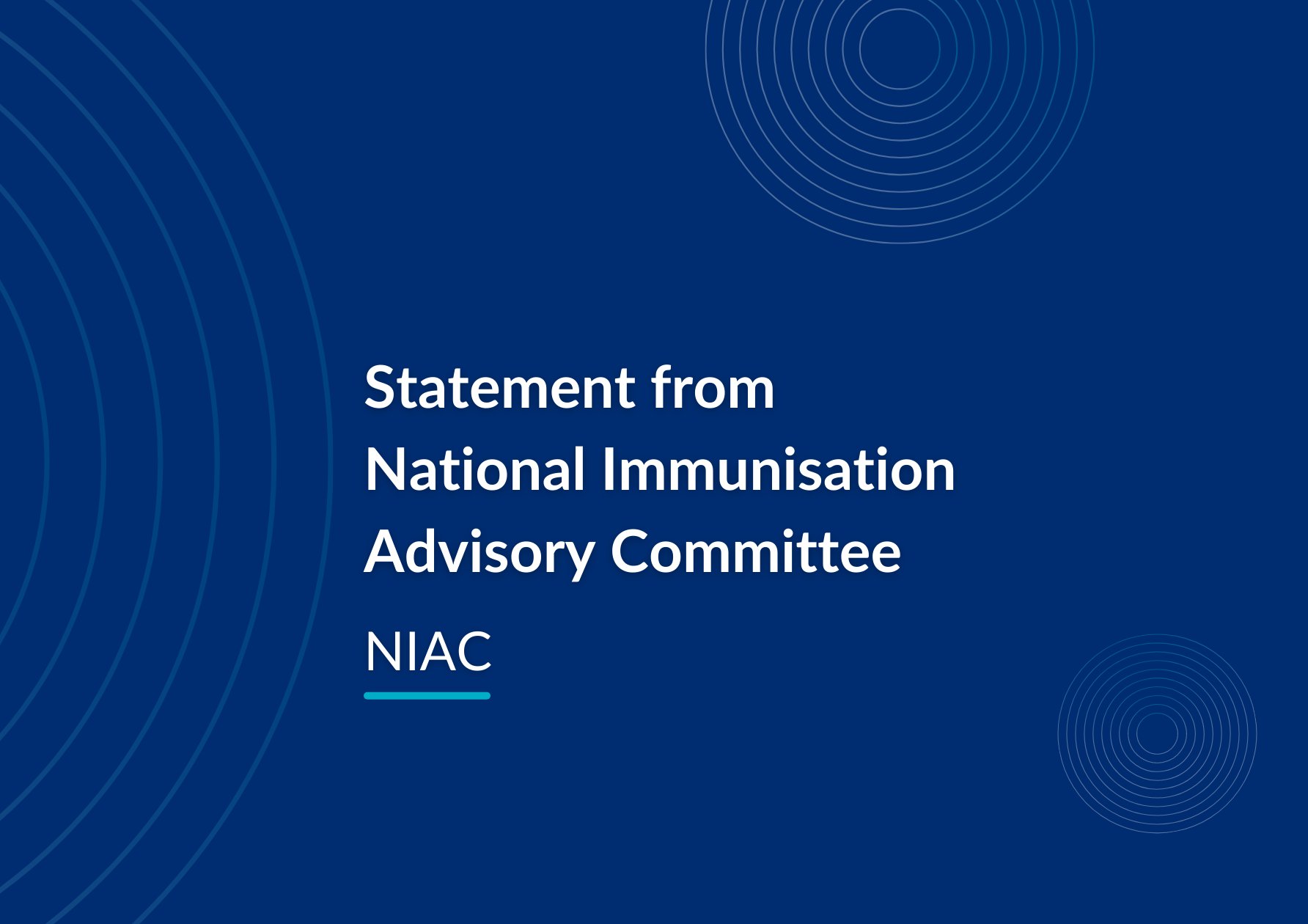The National Immunisation Advisory Committee has issued revised advice on the use of the AstraZeneca COVID-19 vaccine.
All authorised COVID-19 vaccines are highly effective in preventing hospitalisation and severe illness and death from this disease.
The National Immunisation Advisory Committee (NIAC) has issued revised advice to the Department of Health on the use of the AstraZeneca COVID-19 vaccine in light of the outcome of the recent investigation by the European Medicines Agency. The EMA has added unusual clotting events with low platelet counts as very rare side effects to the vaccine product information. These rare events are estimated to occur between 4 and 10 in every 1 million people, one of whom may die.
A number of EU states and other countries have issued revised advice regarding this vaccine. NIAC has consulted widely with EU colleagues, specialists in blood clotting and HIQA for input to these recommendations.
The benefits versus the risks of this vaccine may vary by age and as alternative COVID-19 vaccines are available in Ireland, NIAC has revised the recommendations for the use of the of AstraZeneca vaccine (known as Vaxzevria).
- Any authorised COVID-19 vaccine, including Vaxzevria COVID-19 vaccine AstraZeneca, is recommended for those aged 60 years and older including those with medical conditions with very high or high risk of severe COVID-19 disease.
- Vaxzevria COVID-19 vaccine AstraZeneca is not recommended for those aged under 60 years including those with medical conditions with very high or high risk of severe COVID-19 disease.
- A second dose of Vaxzevria COVID-19 vaccine AstraZeneca should not be given to anyone who developed unusual blood clots with low platelets after the first dose.
- Advice for those who have received a first dose of Vaxzevria COVID-19 vaccine AstraZeneca is:
- Those aged 60 and older should receive their second dose 12 weeks later as scheduled.
- Those aged under 60 years with a very high risk or high-risk medical condition should receive their second dose 12 weeks later as scheduled.
- Those aged under 60 years without a very high risk or high-risk medical condition should have the scheduled interval between doses extended to 16 weeks to allow further assessment of the benefits and risks as more evidence becomes available.
Commenting on the new advice, NIAC Chair, Prof Karina Butler, said: “All the authorised COVID-19 vaccines – Pfizer, Moderna and AstraZeneca, and the newly approved Janssen – are highly effective in preventing hospitalisation and severe COVID-19 disease. Vaccination with Vaxzevria COVID-19 AstraZeneca vaccine is highly effective and substantially reduces the risk of severe COVID-19 disease across all age groups.
“NIAC realises the need to balance the significant benefits of a national vaccination programme with the very rare risk of these reported events. While this is an extremely rare condition, consideration must be given to the fact that it has a very high risk of death or severe outcome. As the risk/benefits of Vaxzevria COVID-19 AstraZeneca vaccine may vary by age and as alternative COVID-19 vaccines are available NIAC has revised the recommendations for use of this vaccine.
“In developing these recommendations, NIAC is informed by the available scientific evidence and the risk/benefits of the vaccines. New evidence will be reviewed once available and any further required recommendations will be notified to the Department of Health.
“We strongly encourage everyone to accept the COVID-19 vaccine they are offered. A high uptake of vaccine in every age group is needed if COVID-19 is to be controlled, so that public health restrictions may be safely removed” Prof Butler said.
Read NIAC’s Recommendations for the use of Vaxzevria COVID-19 Vaccine AstraZeneca here
NIAC includes representatives from Department of Health, HSE, the National Immunisation Office, the Irish College of General Practitioners (ICGP) the Health Protection Surveillance Centre (HPSC), the National Virus Reference Laboratory (NVRL UCD), representatives from the Faculties and Institutes of the Royal College of Physicians of Ireland, RCSI, the Infectious Diseases Society, the Nursing and Midwifery Board and representatives of the public. The Health Products Regulatory Authority (HPRA) also attend NIAC meetings to provide regulatory advice in relation to vaccines.
This group of experts meet to consider new evidence about vaccines and provide advice to the Chief Medical Officer and the Department of Health. The Department and the Minister for Health make policy decisions on vaccines which are implemented by the HSE.
Help support Cork Safety Alerts by becoming a member – Click Here

